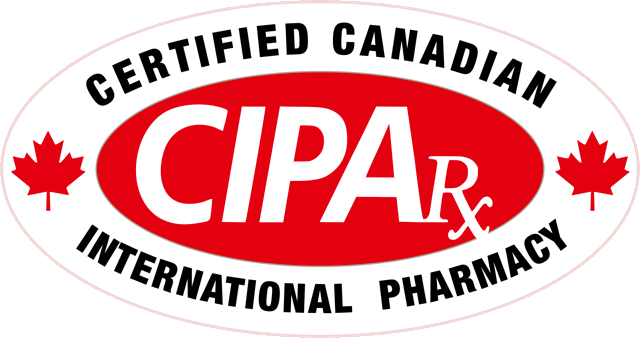Are you Looking to Buy Nevanac (Nepafenac) from PrescriptionPoint.
(Top Brand Option)
 Nevanac
Nevanac
 Prescription Required
Prescription Required | Drug Name | Dosage | Quantity | Price | Buy Now |
|---|---|---|---|---|
| Nevanac | 0.1% | 5mL | $47.00 | Add To Cart |
| Nevanac | 0.1% | 10mL | $85.00 | Add To Cart |
| Nevanac | 0.1% | 15mL | $123.00 | Add To Cart |
(Affordable Generic Options)
 Nepafenac
Nepafenac
 Prescription Required
Prescription Required | Drug Name | Dosage | Quantity | Price | Buy Now |
|---|---|---|---|---|
| Nepafenac | 0.1% | 5mL | $36.00 | Add To Cart |
| Nepafenac | 0.1% | 10mL | $55.00 | Add To Cart |
Nevanac (nepafenac)
Indications
- Nevanac ophthalmic suspension is indicated for the treatment of pain and inflammation associated with cataract surgery.
- Used to reduce the risk of macular edema following cataract surgery in diabetic patients.
Dosage and Administration
- Use Nevanac exactly as prescribed by your doctor, usually one drop in the affected eye(s) three times daily beginning 1 day before cataract surgery.
- Continue using it on the day of surgery and for the first 2 weeks following surgery.
- Shake the bottle well before each use.
- Wash your hands before and after applying the drops.
- Tilt your head back and pull down your lower eyelid to create a small pocket.
- Place one drop into the pocket and close your eyes gently.
- Wait at least 5 minutes before using any other eye medications your doctor has prescribed.
- Do not touch the dropper tip or let it touch your eye or any other surface to avoid contamination.
- Avoid using more drops than prescribed, as it will not speed up the healing process.
- Do not stop using Nevanac suddenly without consulting your doctor, even if your symptoms improve.
- Do not wear contact lenses while using Nevanac unless your doctor tells you to.
Mechanism of Action
Nevanac contains Nepafenac, a nonsteroidal anti-inflammatory drug (NSAID). It works by inhibiting the enzyme cyclooxygenase (COX), which results in a decrease in the formation of prostaglandins, compounds that cause pain and inflammation. By reducing prostaglandin production, Nevanac helps to alleviate pain and inflammation associated with eye surgery.
Contraindications
- Do not use Nevanac if you have a known allergy to Nepafenac, any other NSAIDs, or any other ingredients in the suspension.
- Avoid using Nevanac if you have a history of asthma attacks, hives, or allergic reactions after taking aspirin or other NSAIDs.
Side Effects
Common Side Effects:
- Eye pain or discomfort
- Increased tear production
- Blurred vision
- Sensation of a foreign body in the eye
- Itching or redness of the eye
Serious Side Effects:
- Severe eye irritation or redness
- Eye swelling
- Changes in vision
- Signs of an eye infection (e.g., discharge, crusting of the eyelids)
- Severe allergic reactions (rash, itching, swelling, difficulty breathing)
Precautions
- Inform your doctor about any existing medical conditions or medications you are taking before using Nevanac.
- Be cautious if you have a history of bleeding disorders, as NSAIDs can increase the risk of bleeding.
- Regularly monitor your eye health during the treatment period.
- If you are pregnant, planning to become pregnant, or breastfeeding, discuss the risks and benefits of Nevanac with your healthcare provider.
- Do not drive or operate machinery if you experience blurred vision or other visual disturbances after using Nevanac.
Storage Instructions
- Store Nevanac ophthalmic suspension at room temperature (15°C to 25°C) in a dry place, away from moisture and heat.
- Keep the bottle tightly closed when not in use.
- Do not use Nevanac if the solution changes color or becomes cloudy.
- Keep Nevanac out of reach of children and pets.
References
https://www.accessdata.fda.gov/drugsatfda_docs/label/2020/021862s017lbl.pdf
Additional information
Scientific Name: |
Nepafenac |
|---|---|
Formulation: |
Ophthalmic Suspension |
Strength(s): |
0.1% |
Quantities Available: |
5mL, 10mL, 15mL |
The information above is provided by third parties to Prescriptionpoint.com for Nevanac (Nepafenac). This information is for general purposes only and is not intended to replace a physician's advice. Always consult with your doctor or a qualified health care professional if you need advice on any medical concerns.

 Nevanac
Nevanac  Nepafenac
Nepafenac


